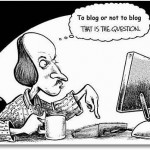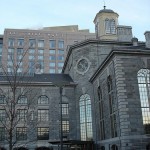To Iqbal or Not to Iqbal?
 One of the recent challenges for Civil Procedure profs has been to explain the Twombly/Iqbal event to students already struggling to understand what often seems to be an arcane and highly contrived subject.
One of the recent challenges for Civil Procedure profs has been to explain the Twombly/Iqbal event to students already struggling to understand what often seems to be an arcane and highly contrived subject.
I begin by lowering expectations, showing a slide of a local federal judge with a caption depicting his reaction to Twombly – expressed on a panel discussing the case at a CLE seminar. “When I read this case,” he recalled, “I said ‘what the hell?'” I remember following the good judge’s remarks and saying that he had succinctly summarized Twombly and all that would follow would be mere elaboration. After Iqbal, I am afraid I still can’t do much better.
Except maybe I can.

